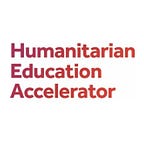HEA Phase 1 Cohort: World University Service Canada (WUSC) - Equity in Education
Learn more about the grantees from our first HEA cohort, including some of their learnings on the journey to scale.
What is the innovation?:
The Equity in Education project aims to improve learning for vulnerable refugee and host community girls via remedial classes, community engagement and peer-to-peer support.
What is the focus area?:
Girls education
Scale:
The remedial programme started with a limited number of places available. However, since 2014, it has grown to reach a target of 2560 girls per year (of which 2000 are new learners every year). WUSC has trained over 350 teachers in girl friendly education as well as impacting over 23,407 girls who benefit from improved education. As from 2018, the remedial programme has scaled into secondary classes within the host and refugee community, reaching an additional 720 secondary students annually.
Programme adaptations to support scale:
Continuous adaptation in response to community feedback, as well as research and M&E findings, is at the core of WUSC’s approach to their Equity in Education programme.
HEA Evaluation:
Both an impact and process evaluation were undertaken on the programme. A mixed methods impact evaluation of the remedial education programme was undertaken via a randomized controlled trial in Kakuma and regression discontinuity design in Dadaab. The process evaluation undertook an analysis of the overall implementation model.
Key learnings:
- A clear selection process for the participating beneficiaries is crucial for programme success: Targeting the right beneficiaries maximises the impact of the programme with limited resources, by reaching out to the most in need of education support.
- Rigorous evaluations take time and must be co-created with the project implementers: Ownership by the programme team leads to fidelity of the impact methodology. Entire programme buy-in is especially useful when we have to make adaptations on implementation, as well as when it comes to sharing the impact results.
- Decision making on scaling up and scaling out should largely be data driven: In light of limited resources and while deciding how to scale, there is a need to know what level of complexity can be accommodated by the project, as well as yield the maximum impact.
- Mapping of key partners is crucial for designing the scaling journey: There are many actors involved in education in emergencies, meaning involvement of other stakeholders, such as the Ministry of Education, is key for external support, as well as for sharing and building upon existing knowledge.
